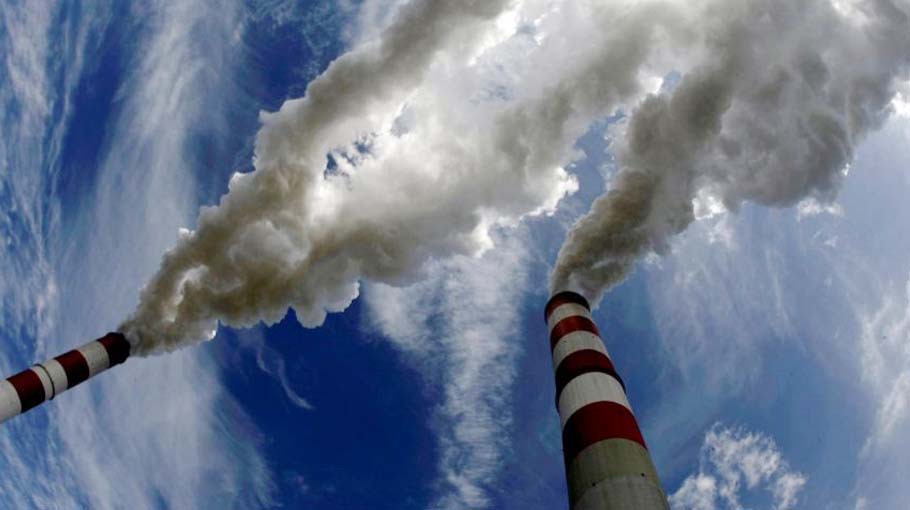People in Asean refuse coal as climate risks grow: Survey


The majority of people in Asean want to shift away from polluting fossil fuels and embrace renewable energy to tackle climate change as floods, loss of biodiversity and sea level rise loom as the top three climate threats in the region, a survey of public attitudes released on Thursday (Sept 16) shows.
Most governments in the region are not doing enough on climate change and need to enact climate-friendly policies and increase green spending, respondents said in the 2021 South-east Asia Climate Outlook published by the Climate Change in Southeast Asia Programme at ISEAS - Yusof Ishak Institute.
Overall, 70 per cent of respondents said climate change is a serious and immediate threat, reflecting the region's vulnerability to the growing impacts of stronger storms, floods, droughts and rising sea levels.
The survey was conducted online from June 11 to Aug 2 and involved 610 respondents from all 10 Asean member states. They came from a range of backgrounds, including academia and governments, business, students, civil society and media.
A total of 79 per cent said they felt the urgency of cutting reliance on coal, the single largest source of planet-warming carbon dioxide (CO2). In Indonesia and Singapore, 85.9 per cent and 85.2 per cent held this view respectively.
The majority of Singaporean, Vietnamese and Indonesian respondents also believe that the reduction of dependence on fossil fuels will yield short-term pain but long-term gains.
There was also a strong consensus on the potential of tapping the renewable energy sector that is emerging across the region. All the respondents from Brunei and Laos agreed with this statement. In both Singapore and Indonesia, 96.7 per cent agreed, while 95 per cent did so in Vietnam.
A total of 46.1 per cent of respondents felt their government is aware of the threats of climate change but has not allocated sufficient resources to address them. A further 24.8 per cent said their government is not giving enough attention to climate change. Only 15.7 per cent said their government has allocated sufficient resources.
Singapore respondents (41.8 per cent) ranked the highest in their views that their government considers climate change an urgent national priority and has allocated sufficient resources to address climate threats, compared with just 2.9 per cent of Thai respondents.
The findings are similar to a climate survey of 17 advanced economies, including Singapore, released on Tuesday (Sept 14) by Pew Research Centre, which found widespread concern about the personal impact of climate change. The survey also found there was less confidence in efforts, particularly by China and the United States, to solve the problem.
"There is indeed a lack of confidence in the government's role in climate action in the region," said Ms Melinda Martinus, a lead researcher at ISEAS - Yusof Ishak Institute and co-author of the report.
"Most South-east Asians are not climate deniers, and they are relatively excited about the economic opportunities arising from green transformation. But, they are not sure and not confident that their government is doing enough to limit global warming to 1.5 deg C," she told The Straits Times.
In the Asean survey, 30.7 per cent picked the European Union as showing the greatest climate leadership, followed by Japan at 19.3 per cent, China at 7.7 per cent, Australia at 5.4 per cent and the US at 4.8 per cent.
Respondents remained uncertain (44.3 per cent) or otherwise divided (23.9 per cent) over whether Asean is effective as a regional organisation in tackling climate change.
They strongly believe that governments need to encourage businesses to adopt green practices, enact climate laws, and allocate more public financial support for green solutions that cut carbon emissions.
The majority of respondents also disagree (45.6 per cent) or are unsure (38.7 per cent) that their government's Covid-19 stimulus spending contributed to a green recovery.
Ms Sharon Li-Lian Seah, senior fellow at the institute and report co-author, said every respondent is likely well aware and might have benefited from stimulus dollars doled out by governments. "The result is very telling in that only 15.7 per cent said spending went towards a green recovery. Almost half of the respondents said there is no evidence of governments contributing to a green recovery," she told ST.
Respondents also want leadership from business, saying that the private sector must adopt green supply chain practices, invest in research and development and adopt greater transparency and accountability in corporate sustainability reporting.
Regional respondents had clear views on the types of steps needed to cut emissions and adapt to climate impacts.
Asked to pick their top carbon-cutting measures, all respondents believed their local city government must prioritise recycling measures (50.9 per cent), renewable energy adoption (49.6 per cent) and promotion of public transport (42.6 per cent).
Respondents were also asked to pick their top adaptation measures. They believed priority should go to green restoration of public spaces (50 per cent), flood protection (49.4 per cent) and air quality measures (49.3 per cent).
While they would like governments and businesses to take responsibility for climate action, they stop short at personal individual responsibility, said Ms Seah.
"While they believe that a reduction in use of fossil fuels is most needed and that it will yield short-term pain but long-term gain and drive innovation and competition of their economies, there is a reluctance to consider other policy instruments such as a carbon tax.
"The preference is for investments in renewable energy and regional forest conservation and restoration programmes, none of which involve personal liability."


